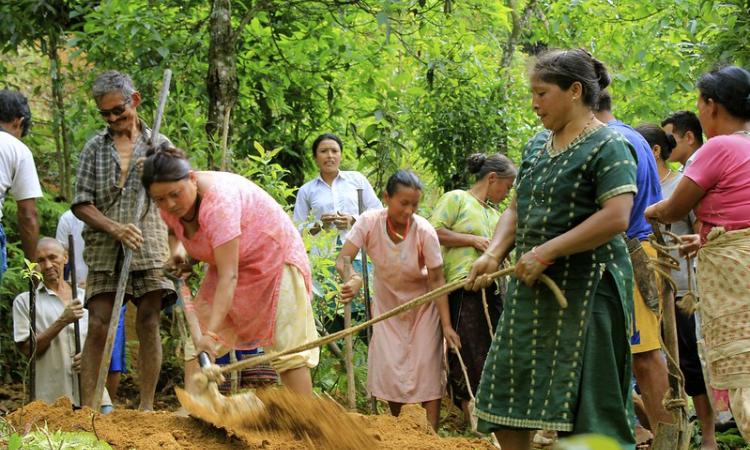
Limca Book of Records recognises UP's Banda for water conservation efforts
Uttar Pradesh’s Banda district has entered the Limca Book of Records for the construction of 2,605 contour trenches and holding 469 jal choupals (village water parliaments) in a single month.
The efforts were made under the Bhujal Bachao, Payjal Badhao (enhance groundwater, protect drinking water) campaign which was supported by district administration of Banda, WaterAid India, Akhil Bhartiya Samaj Seva Sansthan, People’s Science Institute and students of the Mahatma Gandhi Chitrakoot Gramodaya Vishwavidyalaya. The campaign, recognised nationally, is the first of its kind of community engagement model with large scale use of village water parliaments for mass action on water conservation. (The Week)
Summers this year to be warmer than normal, predicts IMD
According to the the India Meteorological Department (IMD) average temperatures are likely to be higher than normal by at least 0.5 degree C for March, April, May in northwest, west and central India and some subdivisions in south India. Moreover, it has been predicted that above normal heat wave conditions are likely in the so-called core heat wave (HW) zone, that includes areas prone to heat waves, in the coming summer months. The forecast further said that even in the absence of a heat waves, the core areas will be hotter and there is about a 43 percent probability of maximum temperatures in the core heat wave zone being above normal. (Hindustan Times)
Despite efforts, Karnataka river water quality fails to improve
According to a Karnataka State Pollution Control Board (KSPCB) report, over 708 km of seven major rivers and its tributaries have levels of contamination ranging from Class B, that includes water suitable for organised outdoor bathing to Class D that includes water suitable to maintain aquatic life. While Arkavathi, Tungabhadra and some sections of the Cauvery are classified as Class D, only three rivers--Kali, Kumaradhara and Netravati--are classified under Class B that include waters suitable to be used for organised outdoor bathing. Moreover, the report revealed that 700 million litres per day (MLD) of sewage is being generated on these stretches, but the capacity to treat this waste is still being built or nonexistent. (Livemint)
Himachal's Giri project shelved after spending crores for past two years
The Himachal Pradesh government has shelved the 65-MLD Giri barrage project that aimed to cater to the water needs of the state capital, Shimla. The government had been spending crores of rupees for the project over the past two years. It was also fast-tracked when a fortnight-long water crisis hit the city in the spring of 2018. The officials have reasoned that the Giri barrage project was scrapped as it was expected that the Sutlej water lift project, which is also under-construction along with the Giri Project, would suffice the need of the city. However, the move has raised doubts among experts. (The Tribune)
Study finds mismanagement of water and climate breakdown in 13 Himalayan towns
A series of ten studies conducted across 13 towns located in the Hindu Kush Himalayan region across India, Pakistan, Nepal and Bangladesh has found mismanagement of water and climate breakdown in these towns. Further, the study revealed that the famed mountain retreats may soon face acute water distress as the demand-supply gap is already as vast as 70 percent in some of these towns. The study has blamed rapid urbanisation, poor water governance, lack of planning, poor tourism management during peak season as well as climate breakdown for the water stress. (Scroll.in)
This is a roundup of important news published between February 21 - March 3, 2020. Also read policy matters this week.
/articles/ups-banda-exemplifies-water-conservation-efforts